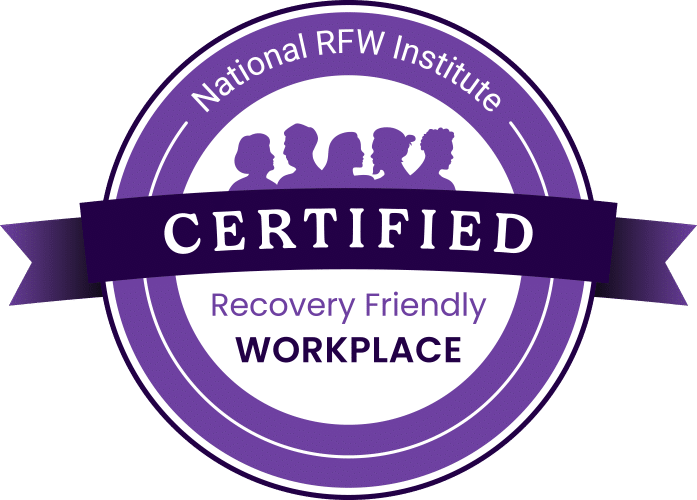table of contents
- What First Inspired Me to Become a Nurse — And What Led Me to My Role at Eliot
- The Earliest Spark: Caregiving in My Own Family
- Academic Exploration: Discovering My Path
- Professional Growth: Gaining Experience and Confidence
- Why Eliot? A Perfect Alignment of Passion and Purpose
- My Role Today: More Than a Job, It’s a Calling
- Challenges and Rewards: A Balanced Perspective
- Looking Ahead: Advocacy, Innovation, and Hope
- Final Thoughts
By Sorhaya Zamor, RN-BSN
What First Inspired Me to Become a Nurse — And What Led Me to My Role at Eliot
Many have asked me this question: “What inspired you to become a nurse?” The answer doesn’t come down to a single moment, but rather, a series of small moments that accumulated over time.
The truth is this: as a child, I wanted to be an archaeologist; by the time I got to high school, I wanted to be a psychologist, mostly a therapist and a social worker. Moments that, though seemingly ordinary, each planted a seed in my heart: compassion, curiosity, and a calling to serve others in their most vulnerable states.
That journey, marked by personal reflection, academic pursuit, and professional growth, ultimately led me to Eliot, where I now serve in a role that aligns deeply with both my passion and purpose.
The Earliest Spark: Caregiving in My Own Family
My earliest memories of caregiving come from childhood. Growing up, I witnessed firsthand the challenges of mental illness within my family. As a Caribbean African Black woman, mental health has always been a taboo, growing up on the island.
I watched close relatives battle severe depression, bipolar disorder, and substance abuse for many years. Although I was too young to fully grasp the clinical aspects of the illness, I understood the emotional weight it placed on my family. I watched my parents show up, care deeply, and try their best, despite not always knowing the right steps to take.
There were nights when my relative couldn’t get out of bed and days when the smallest task felt like climbing a mountain. What struck me most was how invisible it all felt. My dad struggled with depression for many years. He was an alcoholic, but also really depressed, and lost everything in his mid-forties.
People around us didn’t always understand, and there were few spaces where it was safe to talk openly about mental health. The silence and stigma stuck with me.
Over time, those early experiences evolved from confusion to curiosity. I kept asking myself, “Why is mental health treated so differently from physical health?” “What kind of support actually helps someone feel whole again?” “How can I be part of that support system for others?”
Academic Exploration: Discovering My Path
When I entered college, I initially considered psychology. But something was missing. My dad was a banker, struggled for many years, and suddenly died of lung cancer. I was conflicted about whether to bring honor to my dad or follow my own path. My mom had a stroke at 45 years old; as an only child, I had to care for myself and her at an early age.
I decided to learn something where I could be employed pretty quickly. I became an accountant. In Haiti, finances and administration gave you a quick opportunity to work. I started working right after college and landed my first job. After my dad passed in 2007, I confronted the reality of Haiti and migrated to the U.S. I had to care for my disabled mom and my elderly grandma.
I came to the U.S., and I decided to learn something for myself. My first job was as a personal care attendant in the States. I fell in love with my patients. I went back to college and started my nursing journey. I wasn’t just interested in theory; I wanted to be directly involved in care. I wanted to connect with patients face-to-face, offer interventions, and walk alongside them in their recovery. Nursing became the obvious choice. It combined science and compassion. It offered a career grounded in evidence, but also in presence.
As I progressed through my nursing program, I gravitated toward psychiatric nursing. I still remember my first clinical rotation in a behavioral health unit at Salem Hospital. Oh! I felt at peace while many of my classmates felt intimidated or uncomfortable in the environment. I wasn’t afraid of the silence, the tears, or the emotionally charged moments. In fact, I felt called to them. I saw humanity and strength in the patients others overlooked. They weren’t broken — they were only surviving.
Nursing school showed me how layered and complex mental health could be, and it also revealed the gaps in the system. There weren’t enough psychiatric professionals. There was a desperate need for empathy in mental health care. That solidified my decision to specialize in psychiatric nursing.
Professional Growth: Gaining Experience and Confidence
After graduating, I gained experience across several care settings, including rehabilitation centers and nursing homes, each offering valuable lessons that shaped my clinical approach. In September 2013, I began my journey with Eliot as a relief nurse within the DDS (Department of Developmental Services) division. After five years of dedicated service, I transitioned to the DMH (Department of Mental Health) division, where I currently serve as a respite nurse on the North Shore. This role has allowed me to continue supporting individuals in crisis with compassion, stability, and clinical expertise.
My decision to pursue a Master’s degree in Psychiatric Mental Health Nursing was born out of these realizations. I wanted to expand my scope, contribute more to clinical decision-making, and provide therapeutic support that went beyond quick interventions. As a PMHNP, I could offer psychotherapy, prescribe medications, and guide patients toward long-term stability.
Why Eliot? A Perfect Alignment of Passion and Purpose
After becoming a nurse, I began searching for an organization that matched my values. I didn’t want to just “do the job” — I wanted to be part of a mission and lend my voice.
That’s when I found Eliot. I have been an employee for many years, and I wanted to stay.
Eliot’s integrated, person-centered approach to mental health care stood out immediately. This was an organization committed to community-based services, trauma-informed care, and reducing barriers to access. From youth to adults, from outpatient to crisis teams, Eliot’s programs reflected the real-life needs of the populations I had grown to care so deeply about.
But what impressed me most wasn’t just the services — it was the culture. Eliot believes in the dignity and worth of every person. There’s an emphasis on collaboration, compassion, and continuous learning. I could tell that employees weren’t just providers — they were advocates, allies, and change agents.
My Role Today: More Than a Job, It’s a Calling
Today, I serve as a clinical care coordinator at Eliot, where I provide psychiatric evaluations, medication management, and therapeutic support to clients facing a wide range of mental health challenges. No two days look the same, and I love that.
I might start my morning with a young adult managing anxiety and OCD, and spend the afternoon with an older adult navigating grief and depression. I work closely with therapists, social workers, case managers, and families to ensure that our clients receive holistic care. I don’t just treat symptoms — I look at the whole person.
But beyond the clinical work, my role allows me to be a voice for mental health awareness. I’ve led wellness workshops, contributed to community education initiatives, and mentored younger nurses entering the mental health field. These opportunities are deeply meaningful to me. They remind me of the girl I used to be — the one who watched her loved one suffer in silence, wishing someone would speak up.
Challenges and Rewards: A Balanced Perspective
Of course, the work isn’t always easy. Mental health care requires patience, resilience, and emotional endurance. There are days when progress feels slow, when the system feels overwhelmed, and when I carry home more than I’d like to admit.
But there are also days of breakthroughs. When a patient tells me they finally slept through the night. When someone says, “I feel like myself again.” When I watch a person who once seemed hopeless walk out with a smile and a plan for the future. Those moments make it all worth it.
At Eliot, I’m not alone in the work. I’m supported by a team that understands the highs and lows. We debrief. We laugh. We lift each other up. And we keep going because we know the work matters.
Looking Ahead: Advocacy, Innovation, and Hope
As I look to the future, I’m excited by what’s ahead. I want to continue advancing my clinical skills, advocating for policies that support mental health equity, and mentoring the next generation of psychiatric professionals.
I also want to keep writing — sharing stories that humanize mental illness and break down stigma. I believe that narratives have the power to heal. And in a world where mental health is still misunderstood, storytelling is an act of resistance and restoration.
In all of this, Eliot continues to be the right home for me. It’s a place where my personal story, professional expertise, and passion for change come together.
Final Thoughts
Nursing isn’t just what I do — it’s who I am. Becoming a psychiatric nurse was never about following a trend or chasing a paycheck. It was about answering a call. A call to be present with people in their most vulnerable moments. A call to listen, to understand, and to help light the path toward healing.
What inspired me then continues to inspire me now. And every time I walk through the doors at Eliot, I’m reminded that I’m exactly where I’m meant to be.


